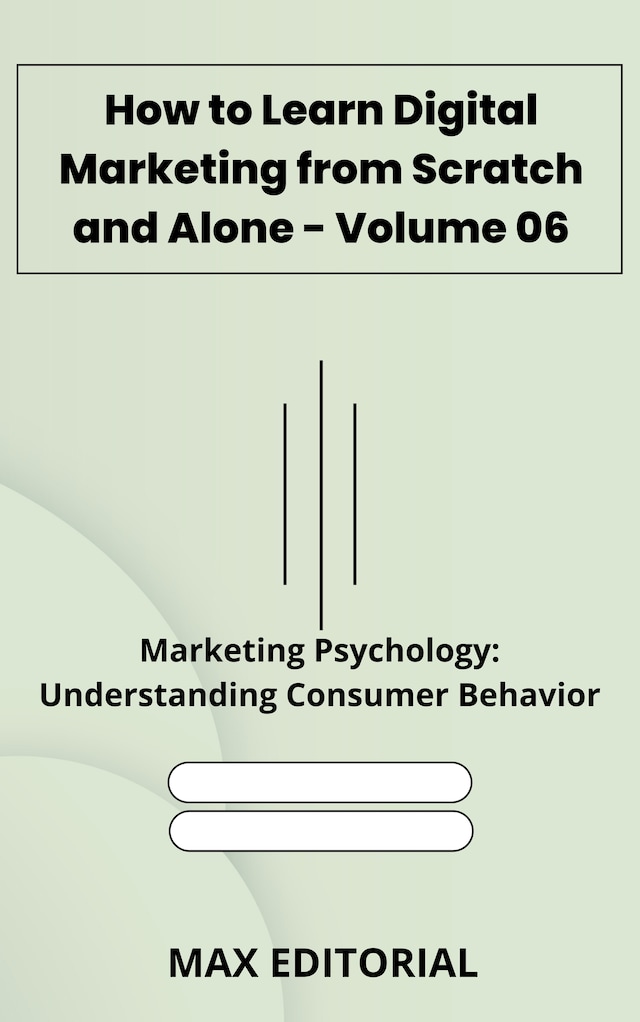
How to Learn Digital Marketing from Scratch and Alone - Volume 06
Marketing Psychology: Understanding Consumer Behavior
Description of book
Marketing psychology is a fascinating field that explores how human behavior influences purchasing decisions and how marketers can utilize this knowledge to create more effective campaigns. Understanding the psychology behind consumer choices can transform marketing strategies, helping brands connect with their audiences in a deeper and more meaningful way.
What is Marketing Psychology?
Marketing psychology studies how psychological factors influence consumer decisions. This includes an analysis of the emotions, perceptions, attitudes and motivations that affect how and why people buy products and services. Understanding these aspects allows marketers to create messages and strategies that resonate with target audiences.
The Importance of Understanding Consumer Behavior
Understanding consumer behavior is essential to creating marketing strategies that really make an impact. When brands know their customers' motivations and needs, they can develop campaigns that meet those demands more effectively. This not only increases the chances of conversion but also builds loving relationships with consumers.
Main Concepts in Marketing Psychology Motivation : What drives consumer behavior? Motivation can be divided into basic needs (such as food and shelter) and psychological needs (such as self-image and status). Understanding these motivations helps brands create campaigns that meet these needs. Perception : How do consumers interpret and give meaning to the information they receive? Perception can be influenced by factors such as product presentation, branding and marketing messages. Brands that understand how to shape perception can create a more favorable and attractive image. Attitudes : Consumers' attitudes towards a product or brand can determine their purchasing behavior. Attitudes can be influenced by past experiences, recommendations from friends and family, and marketing campaigns. Emotions : Emotions play a crucial role in purchasing decisions. The ability to evoke positive emotions, such as joy or reassurance, can increase the likelihood of conversion and brand loyalty.
Practical Applications in Digital Marketing Market Segmentation : Using psychological data to segment target audiences based on their behaviors and preferences can make campaigns more effective. For example, segmenting consumers based on their motivations or attitudes can help create more targeted and impactful messages. Personalization : Personalizing marketing experiences, such as product recommendations based on purchasing history or online behavior, can create a sense of relevance and increase engagement. Testing and Adjusting : Conducting A/B testing to understand how different messages and offers affect consumer behavior can provide valuable insights and help optimize campaigns.
Conclusion
Marketing psychology offers deep insight into how consumers think and age. By applying the principles of psychology to digital marketing, professionals can create more effective strategies and build stronger networks with their audiences. This knowledge is fundamental for anyone who wants to understand and influence consumer behavior effectively.
 Max Editorial
Max Editorial 38 Pages
38 Pages